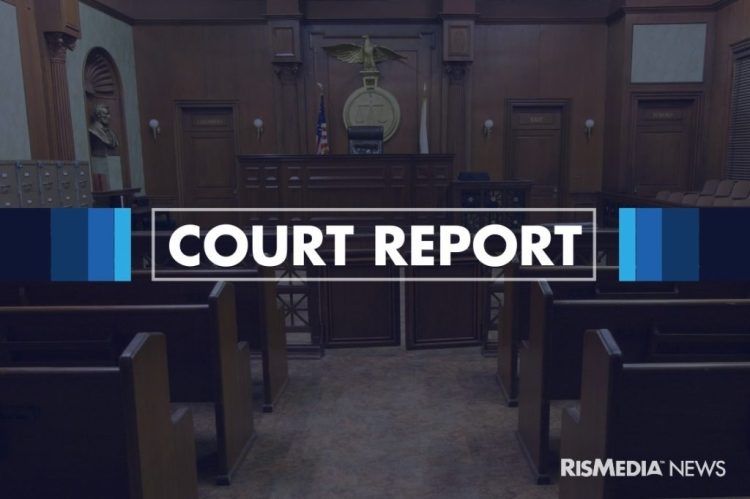The COURT REPORT is RISMedia’s weekly look at current and upcoming lawsuits, investigations and other legal developments around real estate.
Homie lawsuit against NAR and large brokerages dismissed
In August 2024, Utah-based Homie Technologies, which was founded in 2015 offering a flat fee for home sellers rather than a commission rate, filed an antitrust lawsuit against the National Association of Realtors® (NAR). Other entities named as defendants in the lawsuit included several large brokerages—including RE/MAX, Anywhere Real Estate, Keller Williams Realty and HomeServices of America—and the local Wasatch Front Regional MLS. In the lawsuit, Homie claimed that the defendants “conspired” to boycott low commission listings.
On July 15, 2025, federal Judge Dale A. Kimball for the District of Utah dismissed the lawsuit. Kimball ruled that Homie had not presented enough evidence of harm due to industry rules and had missed the four-year window to sue for antitrust violations, reports Reuters.
The Salt Lake Tribune had previously reported in April 2024 that Homie was ending its brokerage services and releasing employed agents—the company’s lending and title teams were not affected at the time.
Compass v. Zillow: Judge permits expert discovery, though limited
In June, Compass filed an antitrust lawsuit against Zillow. The crux of the lawsuit is the portal’s new rules, which mandate that publicly marketed listings be published on an MLS within one business day. Listings that do not meet this standard will be removed from Zillow’s platform. Compass has also alleged Redfin and eXp are co-conspirators of Zillow’s based on their support of the rules.
Today, Judge Jeannette A. Vargas, of the U.S. District Court’s Southern District of New York, ordered a limited scope of discovery as Compass seeks a court order to prevent the new rules from going into place.
Due July 28, the two parties must submit a joint letter agreeing to a narrowed scope of expert discovery and a revised schedule. The court advised for “a discovery world of…several thousands of documents, but not tens of thousands.”
The interrogatory response deadline coincides with the current four-week deadline to review the thousands of documents, noted Bonnie Lau, the defendant’s counsel.
Following the joint letter, a conference will be held on July 30 at 11 a.m. ET.
The previous week, Zillow also responded to Compass’ broader accusations. In a sworn statement, Zillow CEO Jeremy Wacksman denied any supposed conspiracy with eXp and Redfin, calling Zillow’s new listing standards a unilateral decision and emphasizing the pro-competitive benefits of listing transparency ostensibly created through the new rules. Zillow also asked the judge to deny Compass’ request for an injunction against the new rules.
“For years, the status quo has been reciprocal access, to the benefit of consumers. An injunction would encourage brokerages to upend this status quo by hoarding listings and reducing consumer choice. Denying Compass’s injunction would further the public interest in an accessible, competitive market,” wrote Zillow’s lawyers.
Keller Williams’ telemarketing lawsuit dismissed
In June 2025, Keller Williams was sued for alleged violation of the Telephone Consumer Protection Act by sending telemarketing messages to the plaintiff, who had placed their phone on a national do not call registry.
The plaintiff had been seeking class-action status for the lawsuit—but no longer, as the plaintiff filed a dismissal without prejudice (meaning the case can hypothetically be refiled) on July 10.
Keller Williams has faced previous litigation over its telemarketing practices, including a class-action lawsuit which it ultimately settled for $40 million without an admission of wrongdoing.
NAR seeking dismissal of broker lawsuit
California broker John Diaz has previously sued NAR—as well as the California Association of Realtors® (CAR), Lodi Association of Realtors® (LAR) and the independent MLS, MetroList—on antitrust grounds, demanding a court injunction around NAR policies concerning membership dues.
NAR made its first substantial response to the suit earlier in July, asking for a dismissal with prejudice of the case. In NAR’s response, it claims that Diaz has not substantiated his claims of harm.
“Plaintiff’s attempt to contort his complaints about the dues formula into federal and state antitrust violations by invoking buzzwords and bare conclusions does not meet the threshold to survive a motion to dismiss,” read the filing. “Plaintiff has not pled any injury and for that reason he lacks standing…also (he) fails to plausibly plead any antitrust claim.”
Diaz has previously filed a lawsuit against NAR in November 2024 that was dismissed before the end of the year—he refiled in June 2025. Diaz’s efforts are part of a trend of real estate brokers undertaking antitrust litigation against associations.
REX appears poised to appeal Zillow lawsuit to Supreme Court
While Zillow is currently preoccupied with its legal battle against Compass, another harsh critic of the portal’s practices seems ready to take one final shot in its own long-running lawsuit.
In a filing last week, listing service startup Real Estate Exchange, Inc., better known as REX, notified the Ninth Circuit that it was asking Supreme Court Justice Elena Kagan, who oversees that circuit, to grant them an extension of time to potentially appeal their case to the highest court.
REX is asking for roughly one month, until August 15, to file its appeal.
REX first sued Zillow and NAR back in 2021, focusing its lawsuit on the recently repealed (and optional) “no-commingling rule,” which banned MLS listings from appearing alongside non-MLS listings. REX eventually lost at trial, with NAR dismissed from the lawsuit before that occurred.
REX also failed to revive its claims at the Ninth Circuit, even as the Department of Justice (DOJ) intervened to support at least some of REX’s legal theories. NAR and Zillow have repeatedly emphasized that the no-commingling rule was always optional, even as around 71% of MLSs adopted it, while REX (and the DOJ) claimed that the rule was “mandatory in practice,” and intended to suppress competition to MLSs.
Clarissa Garza contributed to this reporting.












